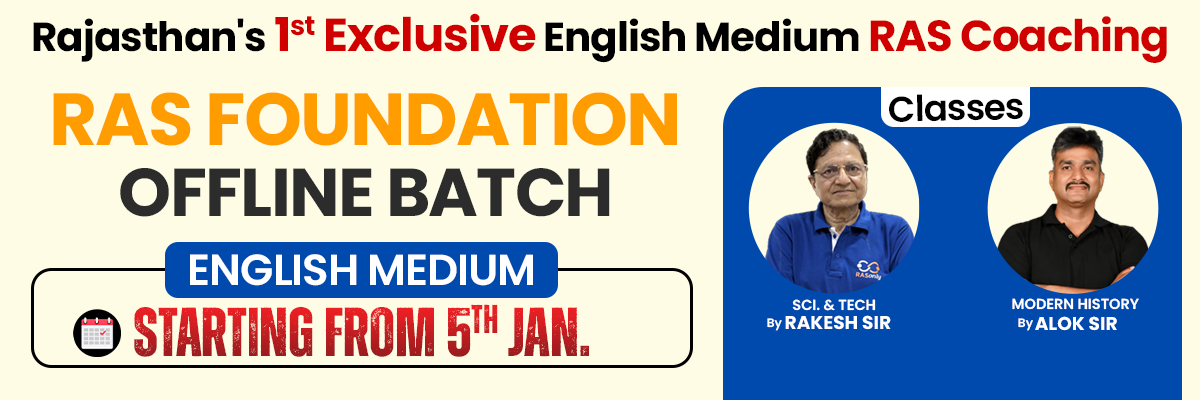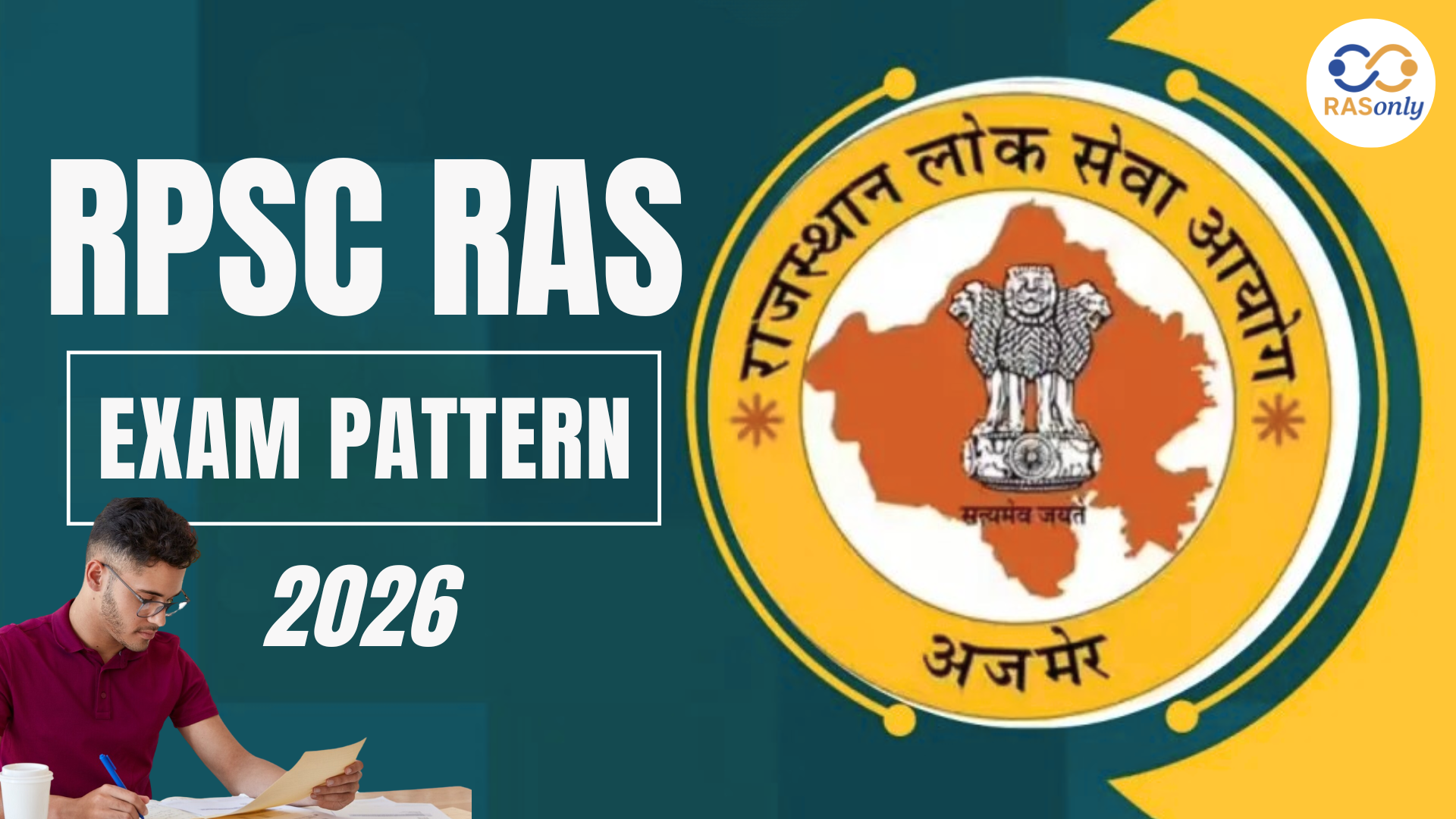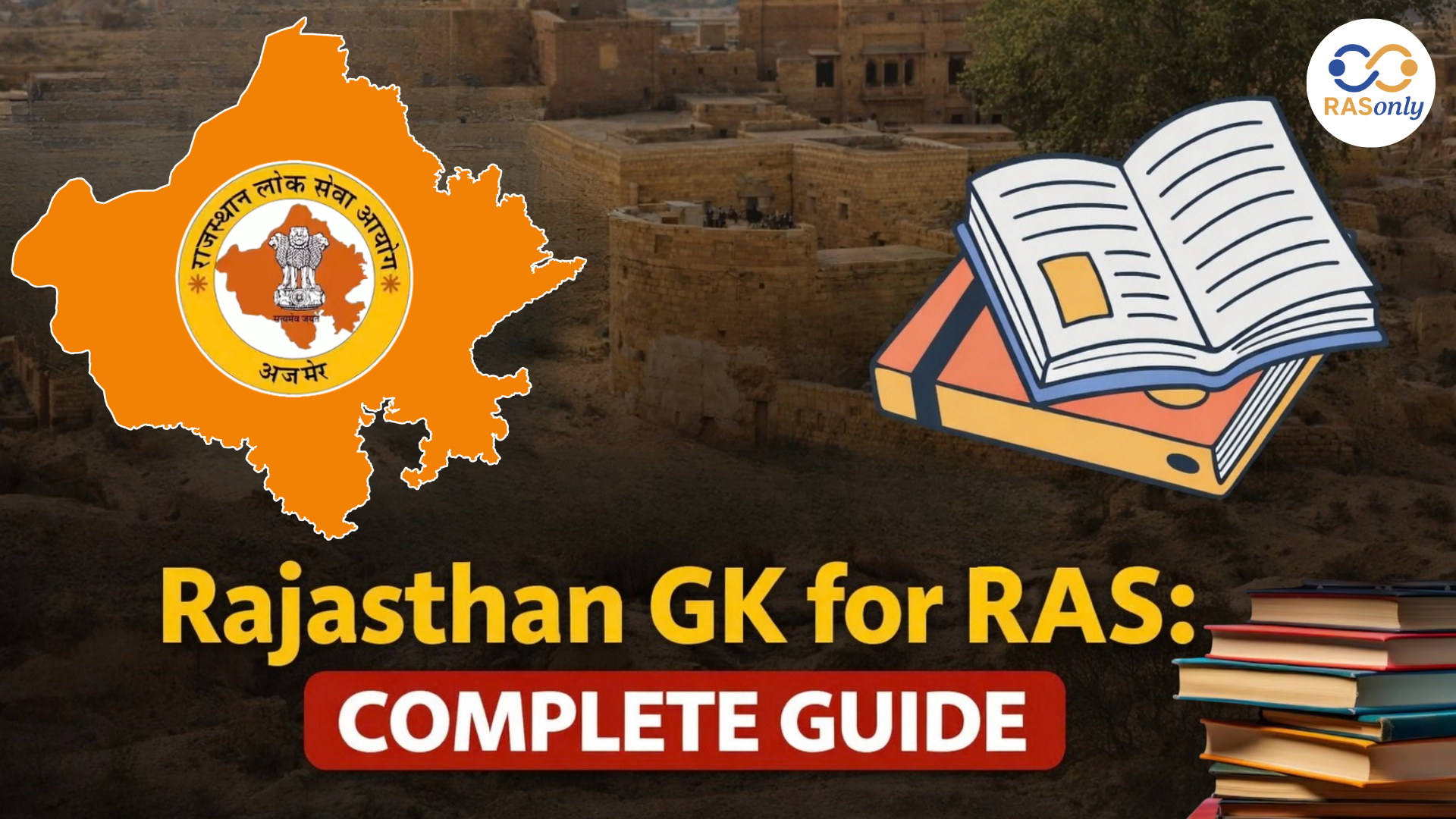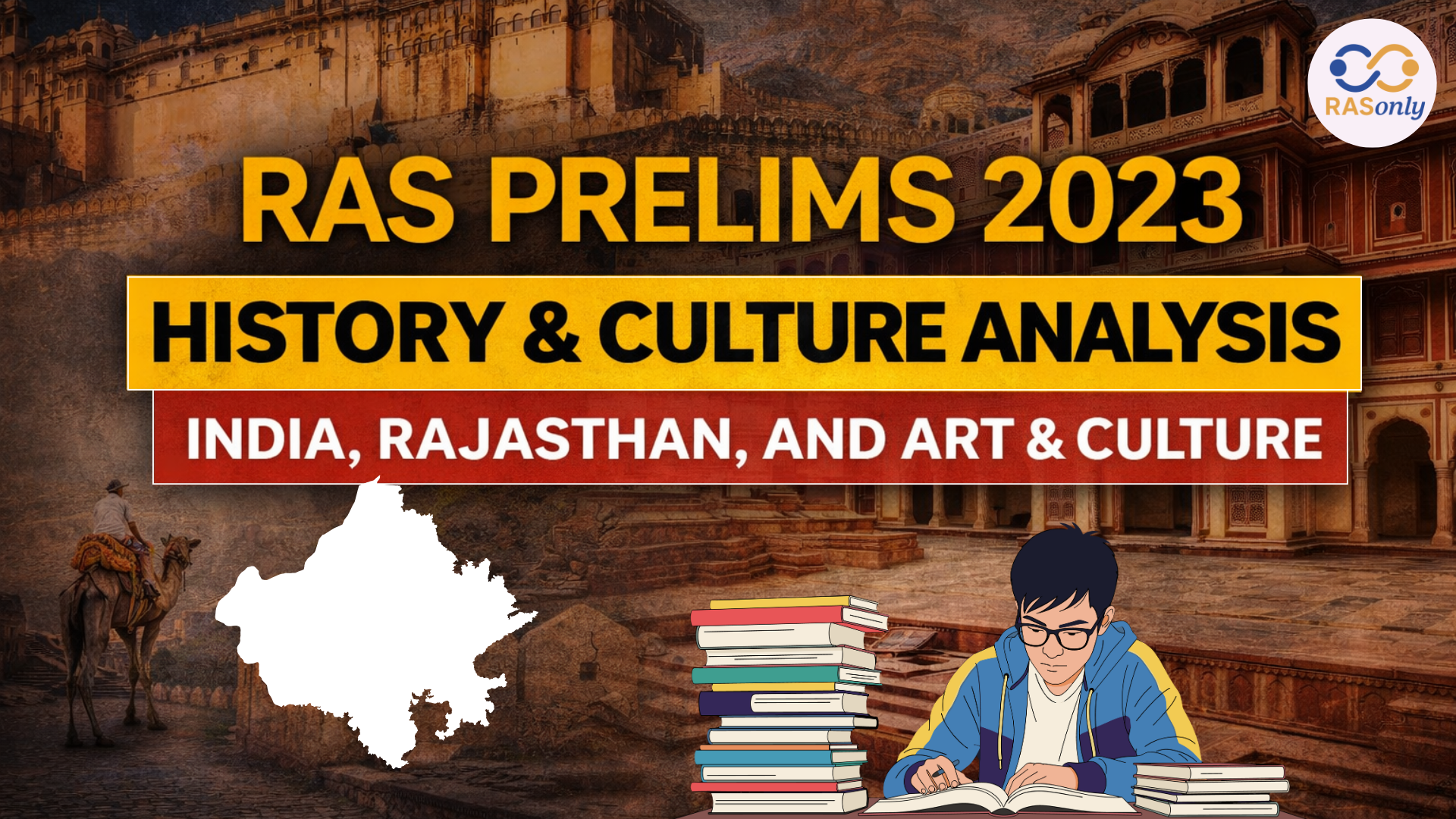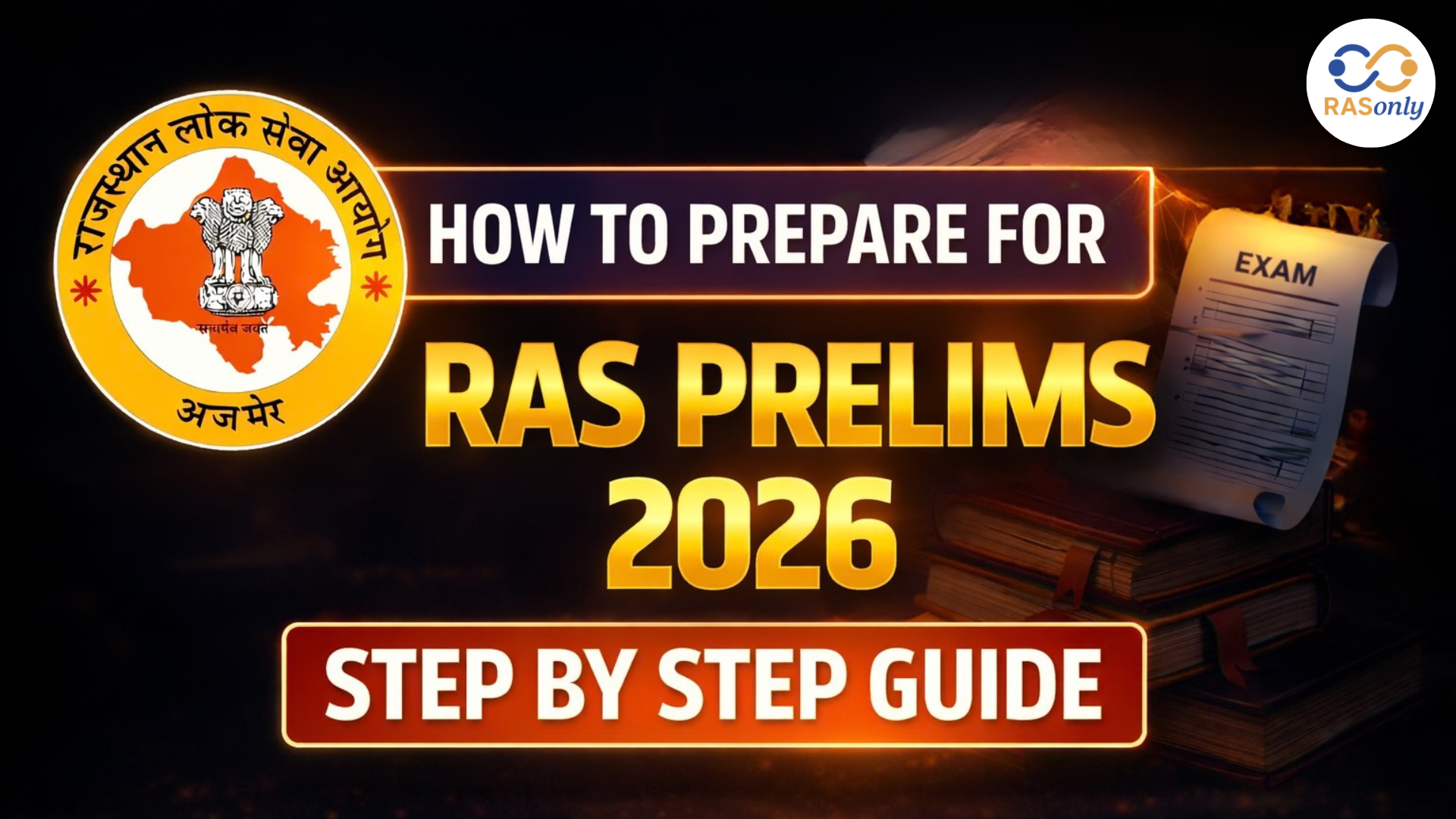RPSC RAS 2026 Subject Wise Exam Pattern for Prelims, Mains & Interview Details
- >
- RAS Preparation Resources
- >
- Pressure Groups in Indian Politics: Dynamics, Challenges and Impact
Pressure Groups in Indian Politics: Dynamics, Challenges and Impact

Get in Touch with RASonly!

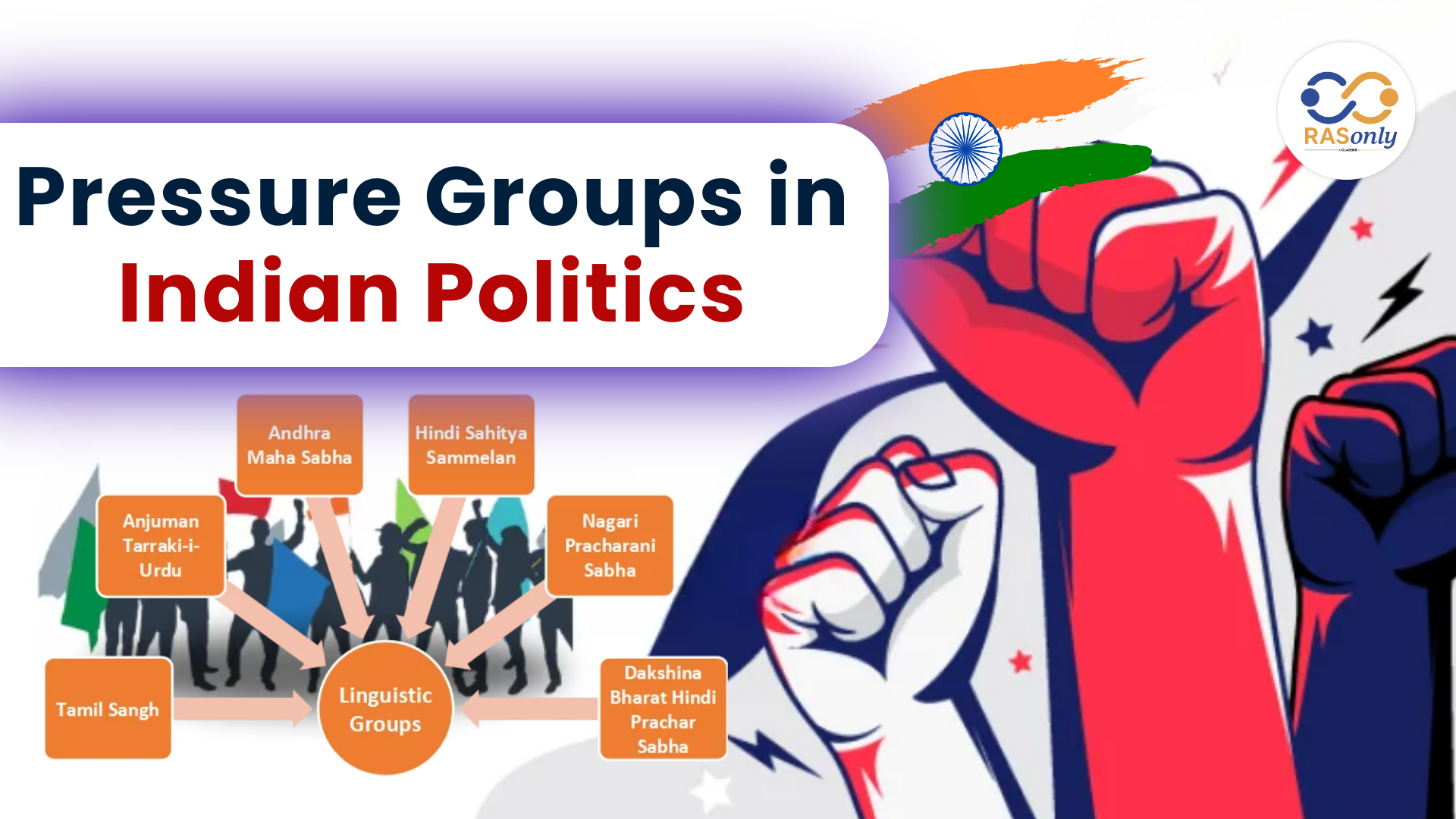
Pressure groups are structured organizations, which seek to impact on the policy of the people without necessarily pursuing political office. They perform the role of mediators between the government and the society, being the agents of change in governance. This has increased their position in India where democracy, society diversity, and awareness among the citizens have increased.
Role of Pressure Groups in Governance
- Extend politics and serve as an outlet to frustrations.
- Have checks and balances through the accountability of the government.
- Assist in the design, execution and evaluation of policy.
- Create awareness by use of information, education and communication.
- Further democratize by debate, discussion, dissent and deliberation.
- Strengthen the underprivileged groups and enhance inclusive development.
Indian reasons to proliferate
- Politics of vote banks and criminalisation.
- The inadequacy of grievance redressal and poor service delivery.
- Globalisation, NGOs impact (e.g. Amnesty, Greenpeace).
- Lack of concern of the political parties with sidelined groups.
- Non-state actors and social movements are on the rise.
Tools and Methods Used
- Electioneering -backing candidates that are on their side.
- Lobbying - influencing politicians and administrators.
- Propagandising - influencing the people with campaigns.
- Other Strategies - petitions, open debates, letters, protests, publicity.
Types of pressure groups in India
- Institutional Groups- IAS Association, IPS Association.
- Associational Groups Trade unions (AITUC, INTUC), Chambers of Commerce.
- Non-Associational Groups- Caste, language groups and ethnic groups.
- Anomic Groups- Spontaneous, frequently violent (riots, Naxalite groups).
Examples:
- Business: FICCI, ASSOCHAM
- Agrarian: Bharat Kisan union.
- Professional: Indian medical association.
- Students: NSUI, ABVP
- Religious: RSS, VHP
- Campaigns; Chipko, Narmada Bachao Andolan.
Impact on Democracy
Positive:
- Empower representation and voice the minorities.
- Be watchdogs and improve accountability.
- Move people and raise awareness.
- Bring some equilibrium to the concentration of power.
Negative:
- Further national interest, sectional interests.
- Threat of violence, corruption, and lobbyism.
- Promote the politics of vote banks and fragmentation on the basis of identity.
- Transparency is compromised by foreign financing, and crony capitalism.
- Demosclerosis: too much pressure is disrupting decision-making.
Challenges in India
- There is poor leadership and weak organisational structure.
- Too much reliance on politics.
- Lack of transparency and accountability.
- Group divisions, frequently based on caste, area or ideology.
- Negative political (bandhs, strikes, violence) influence on governance.
Critical Evaluation
- The pressure groups in India are still divided, weak and in most cases tied to political parties.
- They do not have independent influence as domination of political parties, funds and factionalism as well as poor internal democracy exists, unlike the west.
- Their involvement is however slowly growing with civil society activism, judicial involvement and media assistance.
Conclusion
The role of pressure groups in India is dual as they empower the democracy and affect the governing process but expose it to the dangers of ensuing political turmoil when not controlled. In order to work, they require political financing, openness, and lobbying control reforms. Pressure groups can also be positive contributors to democratic governance by strengthening the civil society and through institutionalising grievance redressal.
Post Category
- RAS Salary
- Result
- RAS Admit Card
- RAS Job
- RAS Cutoff
- Preparation Tips
- RAS Answer Key
- RAS Exam Analysis
- RAS Syllabus
- RAS Previous Year Papers
- RPSC RAS Exam Pattern
- RAS Interview
- RAS Mains Exam Date
- RAS Vacancy
- RAS Test Series
- RAS Best Books
- RAS Preparation Resources
- RAS Coaching Centre
- History
- Polity
- Geography
- Economics
- Science
- Art and Culture
- RPSC RAS Application Form
- RPSC RAS Notification
RASonly Interview Guidance Program

Mr. Ashok Jain
Ex-Chief Secretary Govt of Rajasthan
- IAS officer of the 1981 batch, Rajasthan cadre.
- Passionate about mentoring the next generation of RAS officers with real-world insights.
- Got retired in Dec 2017 from the post of Chief Secretary of the state of Rajasthan.

Mr. Guru Charan Rai
Ex-ASP / SP in Jaisalmer
- Guru Charan Rai, IPS (Retd), retired as Inspector General of Police (Security), Rajasthan, Jaipur in 2017.
- Served as ASP and SP in Jaisalmer, Nagaur, Sri Ganganagar, Sawai Madhopur, Dausa, Sikar, and Karauli.
- He also held key positions as DIGP and IGP in the Law and Order division.

Mr. Rakesh Verma
Ex-IAS Officer, B.Tech, MBA, and M.A. (Economics)
- IAS officer of the 1981 batch and retired in Chief Secretary Rank.
- Civil servant of high repute and vast experience.
- Has been teaching UPSC CSE subjects for the last six years.
Related Post
Daily Current Affairs for RAS Exam Preparation 2026
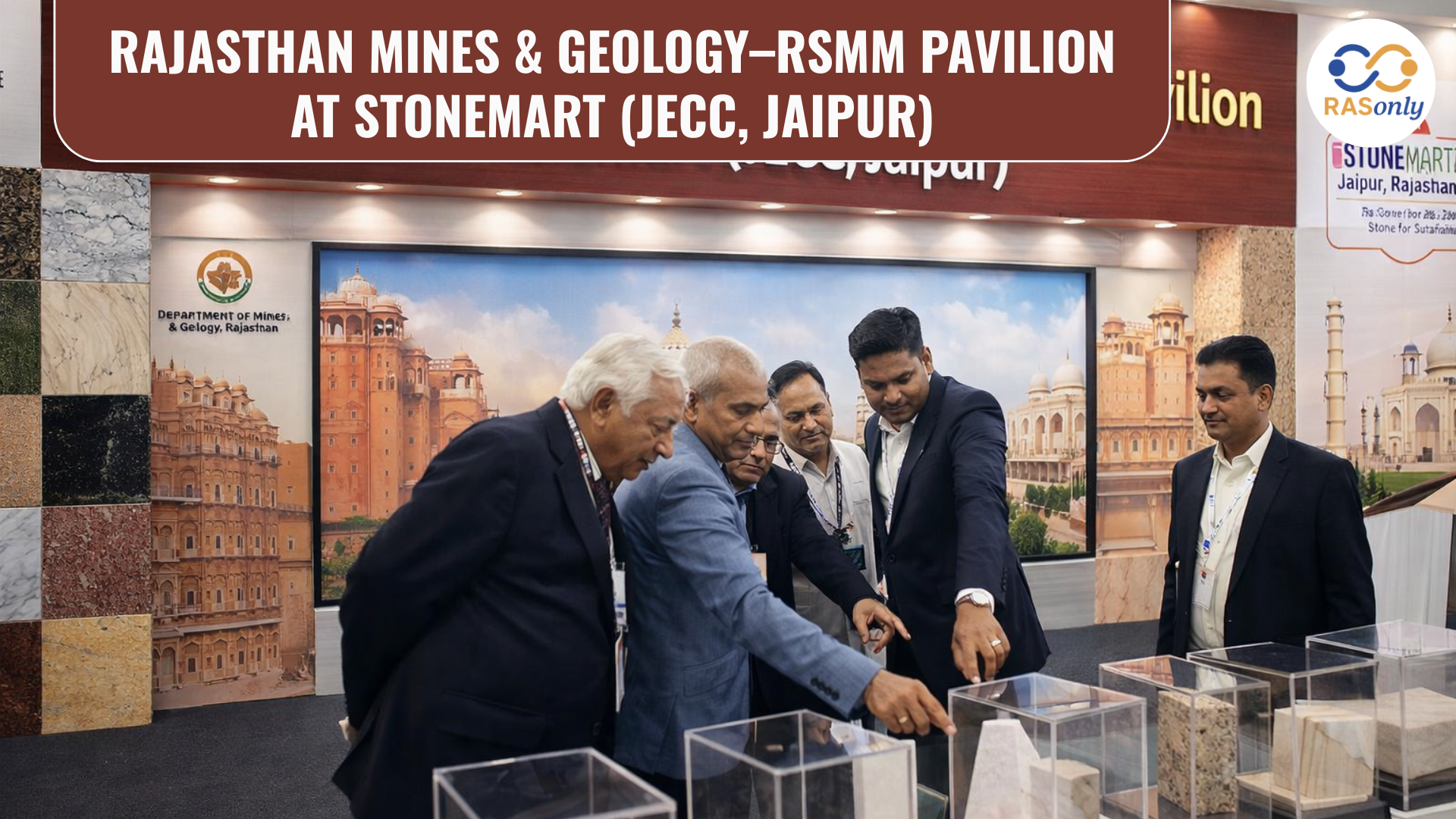
Rajasthan Pavilion Shines at Stone Mart Jaipur 2026
February 07, 2026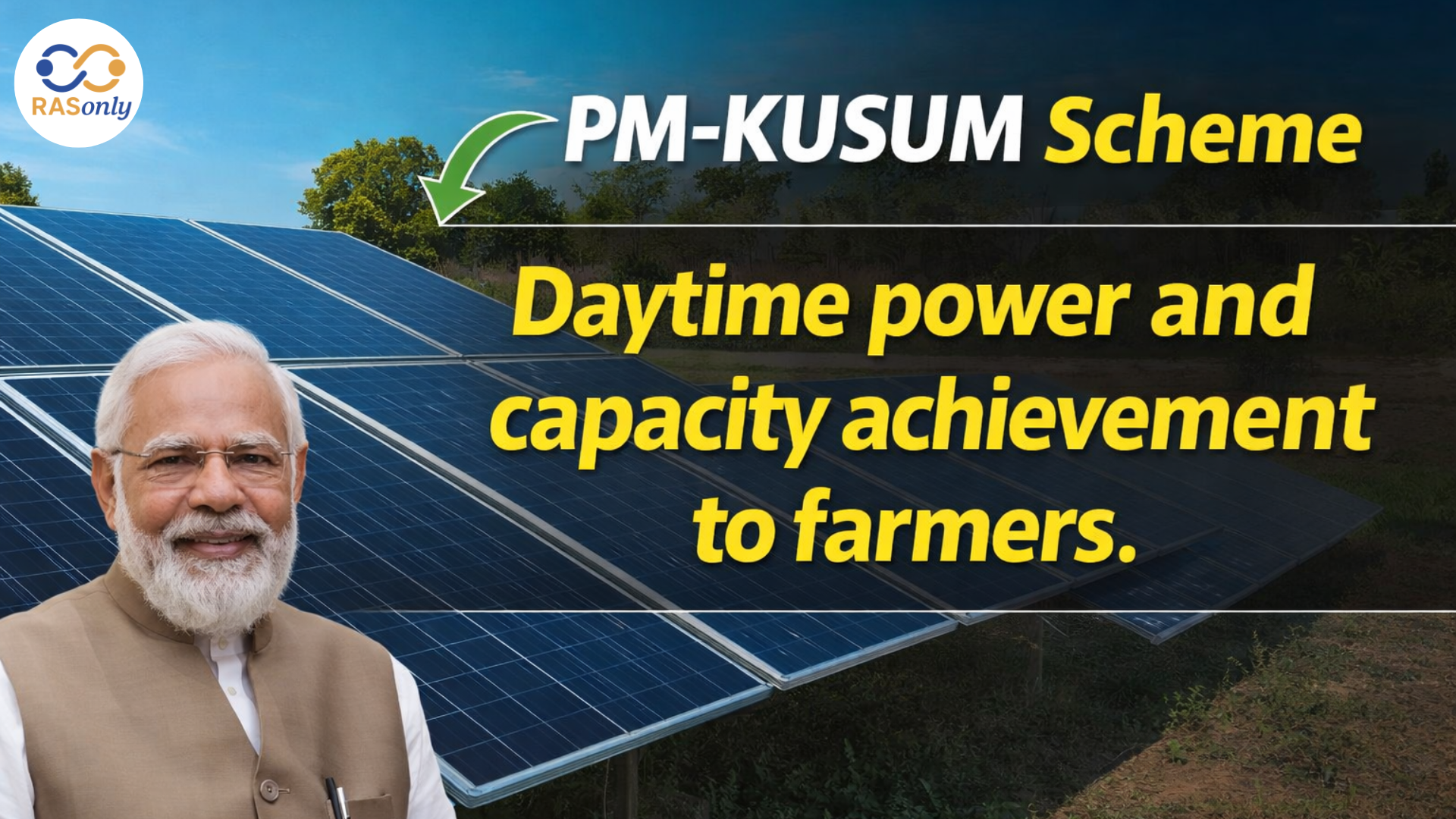
Rajasthan Achieves 3,000 MW Under PM-KUSUM Scheme
February 07, 2026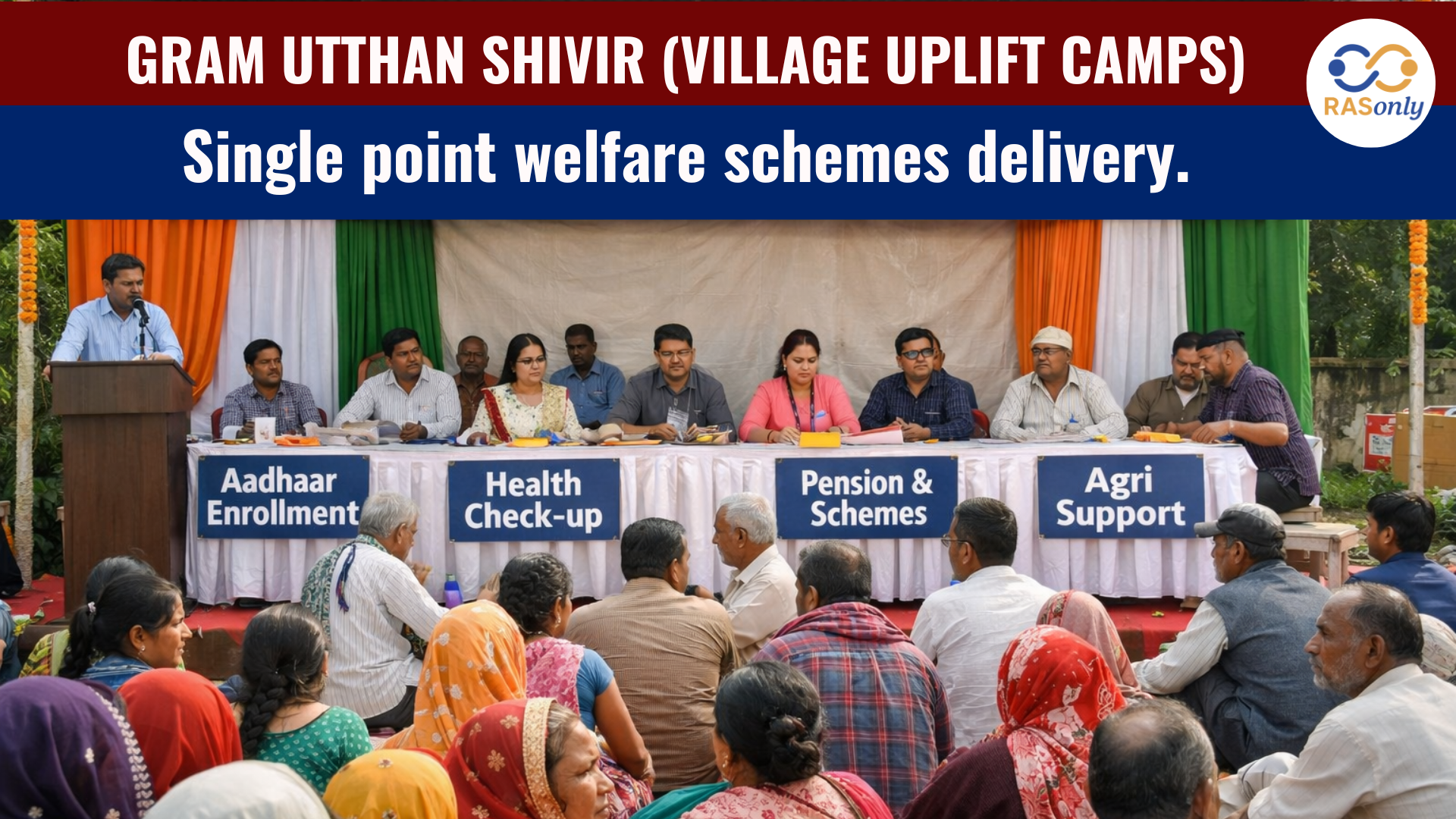
Gram Utthan Shivirs Strengthen Rural Governance in Rajasthan
February 07, 2026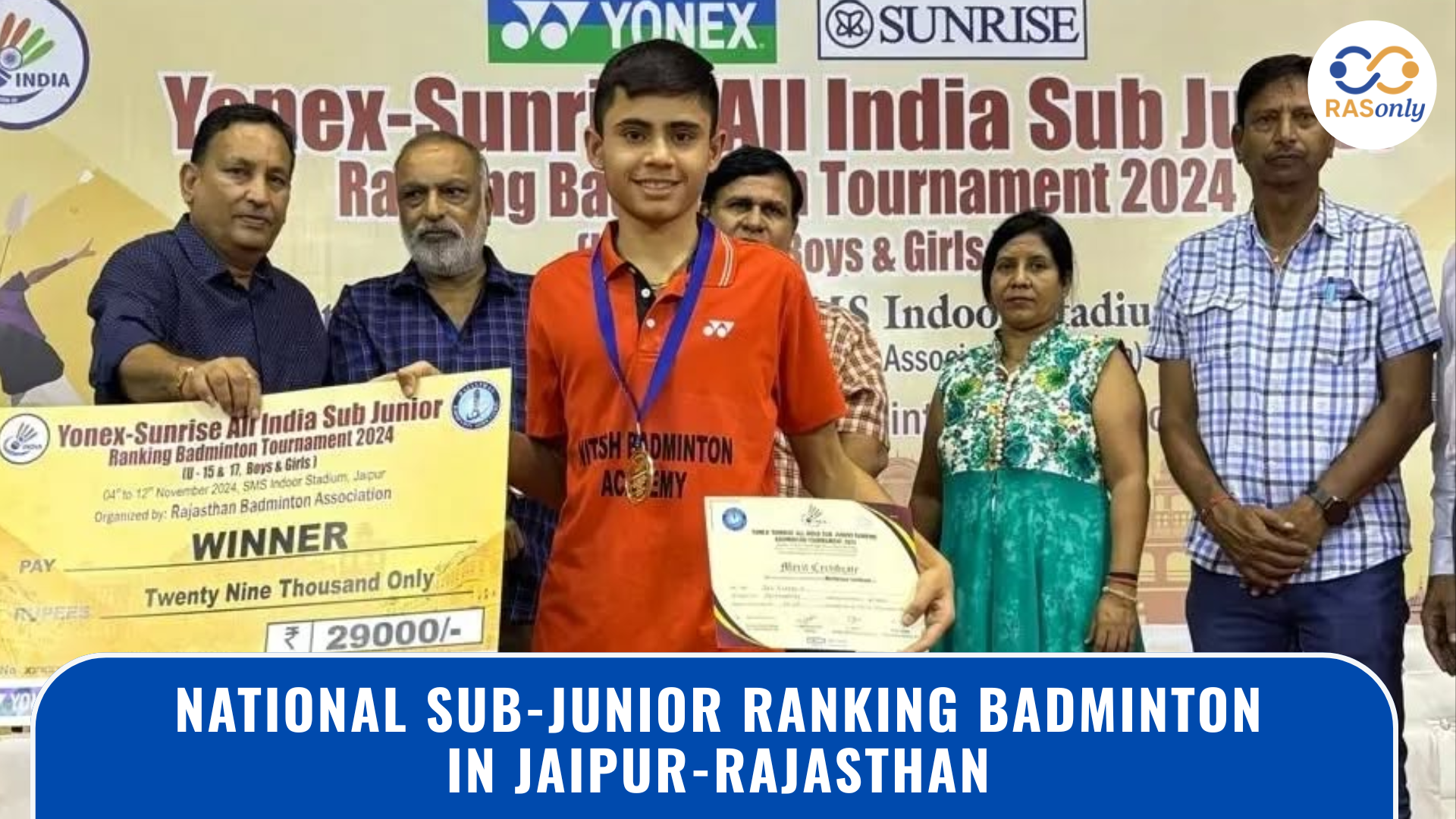
Jaipur Badminton: 72-Minute U-15 Final Creates Record
February 06, 2026👉🏻 Register Today to Join Classes! 👍🏻
- Team RASOnly -
🎯 Benefits of RASOnly Coaching:
- ✅ 1:1 Mentorship with RAS Officers
- ✅ Experienced and Expert Faculty
- ✅ Free Library Access
- ✅ Daily Minimum 4 Hours Must
- ✅ Comprehensive Study Material
- ✅ Regular Tests & Performance Analysis
- ✅ Personalized Guidance & Doubt Solving
- ✅ Online & Offline Class Options
- ✅ Affordable Fees with Quality Education
Key Highlights:
- 👉🏻 3-Day Refund Policy
- 👉🏻 New Batch Starting from 04 August
- 👉🏻 Registration Amount: Only ₹1000




